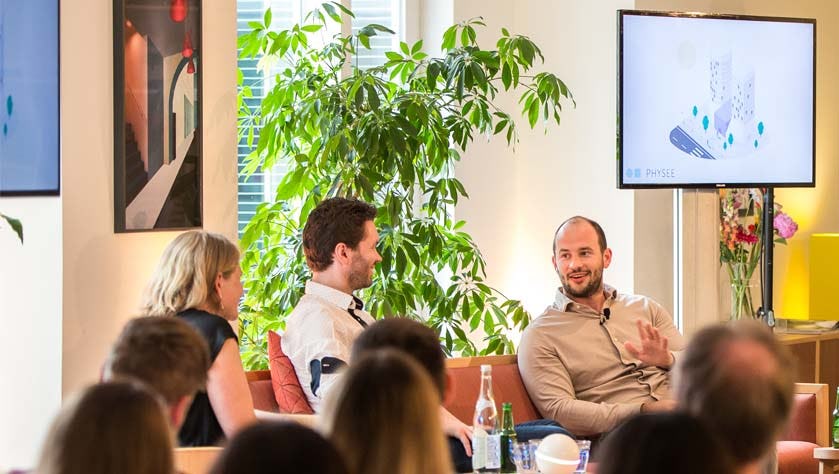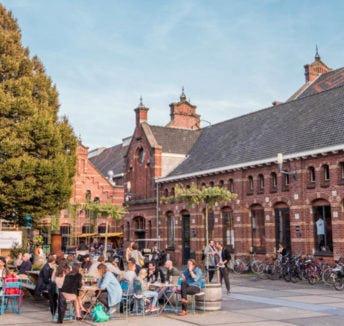
On June 20th, we held the Smart Living edition of Amsterdam Talks Tech at Spaces Herengracht. We welcomed a large crowd and inspiring speakers to discuss the future of living. Together, they held a vivid discussion on what the society of the future will look like.
A changing society
Society’s changing. Many smart living pioneers like to coin today’s day and age the fourth industrial revolution for a reason. With an ever rising population and an environment that’s changing, there’s an increasing demand for technological innovations to maintain a high quality of life. Whether it’s in home innovation or providing tools that make everyday life go easier, the aim of all innovations is to provide a better standard.
Smart living, smart machines
The speakers all strive to offer that sweet spot of making our lives better. Take for instance, Stefan Witkamp, who’s the co-founder of Athom. Their Homey provides a control station for all smart gadgets in your home, allowing you to take control, customise schedules, and integrate all gadgets into a single smart home ecosystem. Together with PHYSEE’s co-founder Ferdinand Grapperhaus, the both of them engaged in a discussion about the many implications for these smart life hacks. And Ferdinand knows this all too well, as PHYSEE makes a smart skin for windows, that doesn’t just absorb the sunlight to turn it into energy, but it also serves as blinds, a cooling system and as air conditioning.
When you’re talking about smart living, the first question that often comes to mind is consent. These systems and innovations are making life easier, but at the same time automation is taking away a certain amount of autonomy from the user, effectively turning people into co-pilots of their own lives. Both speakers took great interest in discussing this phenomenon, and as with many other things, it all comes down to asking certain questions and assessing what works best for the individual. Ask yourself if the loss of autonomy outweighs the benefits provided to you by a certain innovation. Is the answer no? Then by all means, keep on going. But if the answer is yes, tweak your settings so that you’re the one staying in control. Don’t let the AI turn you into a robot. With that said, there was one thing everyone agreed on: trust has to be earned, even for an AI.
room for change
An entirely different second half of the event followed when Zoku’s Hans Meyer and Schoonschip’s Joan Kramer took the stage. Tackling the living space problem, both strive to offer a higher quality of life, albeit in a different way than presented before.
Zoku’s futuristic hotels offer designer living spaces for the travelling professional. All smart of course. Measuring the exact space that people actually use, their spaces provide a uniquely designed comfortable living area that uses the minimal amount of required space. A tiny home, or a tiny workspace if you will. All within a co-living environment that allows people to meet, interact and engage with each other, creating a true community experience.
The Schoonschip initiative as presented by Joan Kramer, offers a very different solution to the living space conundrum. Schoonschip is the world’s first sustainable floating community, and if it’s up to them, not the last. Being completely self-sufficient, this community of house boats gives us a peek at what the future can be: green, independent, and cost-efficient.
With the rise of smart homes, smart gadgets and a continuously more automated lifestyle comes a higher quality of life. Still, it’s impossible to pinpoint exactly what the future will be like. Everyone has a different idea of what it should be like, but promising concepts such as the ones mentioned above do help to shape the future. In the end, it’s all about taking the initiative towards turning concept into creation and putting the necessary work in.
Share this article
 Read now Stimulate your senses for better working
Read now Stimulate your senses for better working
 Read now West side is the best side
Read now West side is the best side